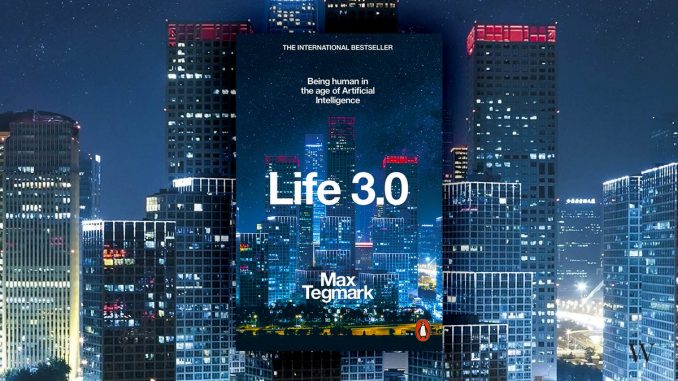
5 April 2019 | Rohan Roberts
“This is the most important conversation of our time, and Tegmark’s thought-provoking book will help you join it.” – Stephen Hawking
“I was riveted by this book. The transformational consequences of AI may soon be upon us – but will they be utopian or catastrophic? The jury is out, but this enlightening, lively and accessible book helps us assess the odds.” – Martin Rees, Astronomer Royal
We once thought only humans could make art, compose music and drive cars. Today, we have AI that can do all of these and much more. Kevin Kelly points out that we are now in the midst of the cognifying revolution. Everything that can be imbued with AI will be imbued with AI. Peter Diamandis points out that AI will have a bigger impact on the human condition than did electricity or fire. That is an astonishing thought. AI is set to transform work, society, culture, our bodies and even human identity. The very rules of what it means to be human are up for grabs. Max Tegmark’s new book, Life 3.0: Being Human in an Age of A.I. is an excellent guide in which he describes the present and future and distant future possibilities about the impact of AI.
Most people formulate their views about the future based on what they watch in Hollywood films: and the narrative is always the same: the machines are going to take our jobs, the cyborgs are out to get us and the robots will destroy us. Tegmark takes a far more nuanced and intellectually satisfying approach to this subject and attempts to answer the bug question: what happens when humans are no longer the smartest species on the planet? What happens when we have artificial intelligence that is millions of times greater than human intelligence?
In the first chapter, Tegmark presents bacteria as an example of what he calls Life 1.0: life where both the hardware and software are evolved rather than designed. This is the biological stage. Humans, on the other hand are examples of Life 2.0: life whose hardware (bodies) is evolved, but who software (mind) is largely designed (by this he means that the algorithms and knowledge we use to process information from our senses and our ability to read, write, calculate, sing and tell jokes). This is the cultural stage.
However, we’re now at a stage where life could undergo an upgrade to Life 3.0 in which life can design not only its software but also its hardware. This is the technological stage. (Edward Harrison’s quote: “Hydrogen… given enough time, turns into people” is a reminder of how extraordinary the forces of evolution are).
Tegmark follows this up with a discussion on the popular controversies, myths and misconceptions associated with AI and moves on to a discussion on what we mean by intelligence, memory, computation, and learning – in other words, he makes a deep dive into what it means when matter turns intelligent. He points out that these concepts have an abstract, intangible, ethereal feel to them because they are “substrate-independent: able to take on a life of their own that doesn’t depend on or reflect the details of their underlying material substrate.”
After making the case that it is getting progressively harder to argue that AI completely lacks goals, breadth, intuition, creativity or language – traits that are central to being human and discussing the near-term potential that AI has to greatly improve our lives, Tegmark explores the ramifications and consequences of an intelligence explosion, analyses a range of possible scenarios, and discusses its aftermath in the next 10,000 years.
Perhaps the most intellectually bracing chapter in the book is “Our Cosmic Endowment: The Next Billion Years and Beyond,” in which Tegmark considers the different scientifically plausible ways in which super-intelligent life would make dramatically more efficient uses of resources in the cosmos, including ways in which to harness dark energy and the power of quasars and black holes.
Max Tegmark is one of the pre-eminent physicists and cosmologists of our time and co-founder of the Future of Life Institute that has received generous donations from the likes of Elon Musk. In this book, he points out that the history of life shows it self-organising into ever more complex hierarchy shaped by collaboration, competition, and control. Superintelligence is likely to enable coordination on ever-larger cosmic scales and the climax of our current race toward AI may be either the best or worst thing to happen to humanity.
In such a scenario, we need to start thinking deeply about what outcome we prefer and how we steer humanity in that direction – because, as Tegmark rightly points out, “if we don’t know what we want, we’re unlikely to get it.” The impact of AI and the future of humanity is much too important to be left in the hands of parochial politicians fanning the flames of nationalism and corporations worried about quarterly revenues. This requires all of us to be aware and to make informed decisions about the kind of future we want. Max Tegmark’s book is a grand and exhilarating study of the subject and an excellent place to start.